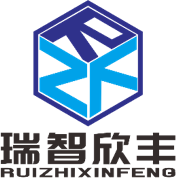
Industrial PCB & PCBA Manufacturer
Industrial PCBA – Circuit boards for industrial control machines
An industrial PCBA, also known as an industrial control board, is a circuit board designed to withstand shock, vibration, extreme temperatures, humidity, and dust in industrial equipment. This PCBA is used to perform many operations in the industrial control industry. It is designed to configure the circuit of a project in a compact manner, which allows current to flow accurately in the required path and enhances product operation. These boards are also critical components of industrial control projects and equipment, helping to measure and configure numerous parameters of the assembly line, and obtain accurate physical quantities.
Industrial Equipment PCBA Company – Richpcba
If you’re looking for high-quality industrial control PCB/PCBA boards at affordable prices, www.richpcba.com is your best bet. Established in Shenzhen, China in 2004, we are a turnkey PCB assembly manufacturer that has served thousands of domestic and foreign enterprises over the past few decades. Our manufacturing services aren’t limited to PCB and PCBA; we also execute special requirements, rework, and modifications requested by customers to their satisfaction. Through our professional work practices and dedicated work attitude, we’ve been recognized by many leading manufacturers in the industrial field.
We specialize in manufacturing multi-layer industrial PCBs and provide one-stop PCBA services. Our process starts with a file or Gerber sent by the user. After receiving this file, our engineers review and establish the manufacturing process to create PCB boards and PCBA items for industrial control using different technologies. RICHPCBA can meet the requirements of customers for simple to complex projects, small batches to high volume PCB assembly, and startups to industrial giants. Our team of experts executes projects through 1V1 project managers, supported by procurement, engineering, manufacturing, and quality control teams.
● PCB Manufacturing
● IC Programming
● Component Procurement
● PCB Test
● Reverse Engineering
● PCB Prototype
● Mechanical Assembly
● PCB Assembly
● Lead Free PCB Assembly
● BGA Assembly
● Conformal Coating
● Surface Finishes
Industrial PCB Design Factors
Component Layout
The placement of components on the board layout is a critical factor to consider when designing industrial control PCB boards. Improper component placement can affect the reliability and performance of the final product. During PCB board design, special care must be taken to ensure that components are installed on the board with a minimum of 100 mils space between the edges of the board and the mounted components. This ensures that the dimensions of the board and mounted holes are consistent.
EMI & RFI
In industrial applications, it is crucial to minimize the effects of Electromagnetic Interference (EMI) and Radio Frequency Interference (RFI), which can cause noise and disrupt the operation of the PCBA. To this end,Rich PCBA offers several strategies:
Board layout: To reduce the risk of noise coupling, separate high-frequency circuits from low-frequency circuits and keep signal traces away from power and ground planes. Signal traces should be as short as possible, while power and ground planes should be as large as possible and routed with low inductance hole connections to minimize the impedance of the power network.
Filtering components: Add filtering components such as capacitors and inductors to power and signal lines to filter out unwanted noise.
Grounding and Shielding Techniques: Enclose sensitive components in Faraday cages to block EMI and RFI.
Component Selection: Choose circuit board components with high-quality grounding and shielding. Use shielded cables to connect the board to external devices to prevent unwanted signal coupling.
Industrial Control PCB Material
The selection of materials for PCB manufacturing is critical and should be based on the specific working environment. Materials for PCBs used in industry must be able to withstand harsh conditions, such as high temperature, high voltage, humidity, vibration, and chemical exposure. Some commonly used materials for industrial PCBs are:
● Polyimide: This high-performance material can withstand extreme temperatures up to 400°C and is often used in aerospace, military, and high-temperature industrial control applications.
● Ceramic: A ceramic PCB is made of a ceramic substrate and metal traces. They have excellent thermal conductivity and can handle high temperatures and harsh chemicals. They are commonly used in power electronics and high-frequency applications.
● PTFE: PTFE or polytetrafluoroethylene is a fluoropolymer with excellent electrical insulating properties that can withstand high temperatures up to 260°C. It is commonly used in high-frequency and microwave applications, as well as harsh chemical environments.
● FR-4: This composite material made of woven fiberglass cloth and epoxy resin is the most commonly used material for general PCBs, including industrial. FR4 PCB has good electrical insulation properties and can withstand high temperatures and chemicals.

